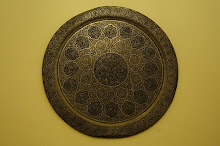
We have added a new section to the sidebar of this blog, titled 'Books on Human Development'. It's a list of a dozen works that we feel are useful in increasing understanding of human behaviour, thus permitting any human development process to be that much easier. The list is obviously far from exhaustive, and each book will certainly suggest many other equally worthwhile tomes.
One of those works listed is "Humanity on a Tightrope", by Paul Ehrlich and Robert Ornstein, two scientists whom we've mentioned in an earlier post called "Old World New Mind". This more recent book is about the need for humans to develop a wider definition of kin and family in an era where our old instincts to protect a smaller circle of blood relatives (or tribe or nation) may be both archaic and the direct cause of chaos and conflict.
As we see every day now, the Middle East is in turmoil. Countries are fragmenting, political parties are at each others' throats, and ethnic and religious groups live in suspicion of each other, if not outright hostility. As Ehrlich and Ornstein explain, one of the reasons for these problems is that our empathy is strictly reserved for those we view as "family" - and family here can also be the "pseudo kin" of tribe or nation. If someone is not seen as kin, biological or otherwise, then this "other" is not seen to be in the same boat as us - with many consequences for how treat them.
This may seem a banal observation. But the authors make the case that our current attitudes will sink us given the imperative for broader-than-family cooperation if we are to successfully deal with global problems such as resource depletion or climate change. If we stick to kin-competition, we are likely doomed.
In the Middle East, the unquestioned traditional respect for family or tribe means high levels of empathy for those like us - and severe distrust of all outsiders. Wars between ethnic or religious groups, and fruitless high-emotion political fights are some of the results of this inability to empathize with someone outside one's group: a deadly aspect of being human today, and especially in the Middle East.
The authors make the case that we must now learn to expand our traditional empathic circle to the global level. Whether through the media, education, or the better use of international institutions, this should become a critical objective. And there are signs of movement in this direction.
If such a shift can take place regionally in the Middle East, it will be enough to help. The potential practical mechanisms for doing so are many, from economic cooperation to cultural connections. The Middle East can build on its tradition of merchant excellence and a profound heritage to gain greater empathetic ground. Indeed, in this process, lingering habits of superiority of one group over another will also have to go by the wayside as well.
This book was given its title for its obvious meaning, but also because of the automatic empathy we all feel for a tightrope walker performing his or her dangerous feat. We can feel his risk and the threat to his life. Everyone who has visited the Middle East has felt the warmth and hospitality of its peoples, yet the reality is that family and group identity often trump this generosity of spirit, and the region is littered with battles between groups.
If that sense of strong empathy for one's kin can be transported onto the "outsider", if Sunni and Shiite, Israeli and Palestinian, Muslim Brother and liberal can empathize more for each other, as we can with the tightrope walker, then the region may not fall off its tightrope after all.
To read a thorough review of Humanity on a Tightrope, click here.













No comments:
Post a Comment